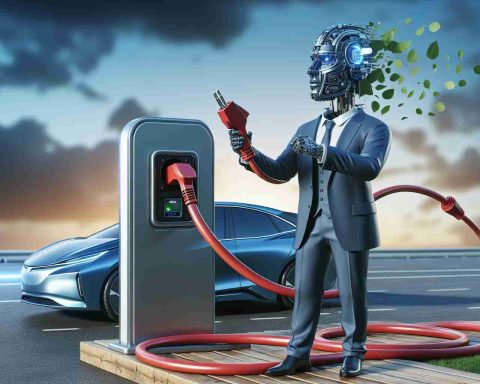Recent developments involving CATL, the leading battery manufacturer, have raised questions about Tesla’s future operations in the U.S. Washington has added CATL to a list of firms perceived to have ties to China’s military, putting Tesla’s CEO Elon Musk in a precarious position as he balances political affiliations with significant business connections to China.
As the primary supplier of lithium iron phosphate batteries to Tesla’s Shanghai factory, CATL plays a crucial role in the production of Tesla vehicles exported worldwide. However, the U.S. Department of Defense’s designation could tarnish CATL’s reputation and foreshadow potential consequences for U.S. collaborations. While this designation is not currently restraining CATL’s business, it serves as a cautionary signal for American companies considering partnerships.
Additionally, CATL is working on a licensing deal with Tesla to produce batteries in Nevada, set to launch in 2025. As CATL seeks to expand its market presence, especially with products like the Megapack, the partnership with Tesla remains pivotal. Analysts highlight that while there seems to be no immediate impact on Tesla, the noise surrounding CATL may lead companies to reconsider their associations.
Amidst the shifting landscape, CATL defends its actions, asserting it is not involved in military activities. With increasing scrutiny, Tesla’s strategic decisions will be closely watched as the world’s electric vehicle market evolves.
The Geopolitical Tug-of-War: Tesla and CATL’s Future Amid Security Concerns
Recent Developments in the Battery Industry
The dynamic between major battery manufacturer CATL and Tesla is becoming more complex due to evolving geopolitical tensions. With CATL’s recent designation by the U.S. Department of Defense as a company with potential ties to China’s military, the implications for Tesla’s operations in the U.S. are significant. Tesla, under the leadership of Elon Musk, must navigate these treacherous waters carefully, balancing lucrative business ties with potential backlash from political affiliations.
The Role of CATL in Tesla’s Supply Chain
CATL is crucial to Tesla’s supply chain, particularly as a key supplier of lithium iron phosphate (LFP) batteries for the Shanghai factory. These batteries are not just pivotal for production but also for the cost-effectiveness of Tesla vehicles, making them vital for the brand’s global market strategy. Importantly, CATL’s involvement extends beyond just battery supply; their planned expansion with Tesla in Nevada, launching in 2025, indicates a deeper integration that could be affected by international relations.
Potential Consequences of the Designation
Despite the current lack of immediate restrictions on CATL due to this designation, analysts are cautioning American firms about the potential reputational risks of working with CATL. Such caution is not unfounded, as public perception and government scrutiny could hasten a reevaluation of existing partnerships within the automotive industry. In this tense climate, Tesla’s decision-making processes are under scrutiny, making any partnerships or expansions potentially contentious.
CATL’s Defense and Future Strategies
CATL has publicly refuted claims of military involvement, asserting a commitment to peaceful business practices. As the company aims to expand its market presence, particularly with innovations like the Megapack — a large-scale energy storage solution — the stakes are high. Should CATL successfully navigate these geopolitical challenges and skepticism, it could remain a formidable player in the battery sector.
Looking Ahead: Insights and Predictions
The ongoing situation will require Tesla to tread carefully, especially as the electric vehicle landscape continues to evolve. Analysts predict that if the geopolitical tensions do not subside, we may see shifts in supply chain management and strategic partnerships within the industry. Sustainability will remain a core focus, but companies may need to adopt more transparent practices to foster trust among consumers and regulators alike.
Key Takeaways
– Market Analysis: CATL’s designation poses potential risks for U.S. collaborations, prompting a relook at partnerships within the electric vehicle sector.
– Insights: Tesla’s relationship with CATL is pivotal as they venture into new territories.
– Future Trends: An increased focus on sustainable practices and transparent operations is anticipated across the industry.
As the electric vehicle market continues to grow, the relationship between Tesla and CATL will be a critical area to watch, delineating how businesses adapt to changing geopolitical landscapes.
For further updates on Schumer’s initiatives and various sectors impacted by geopolitical developments, visit Forbes.













